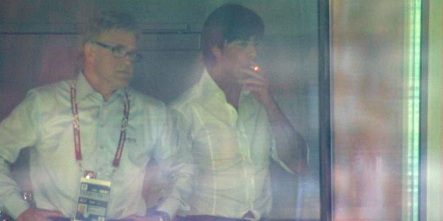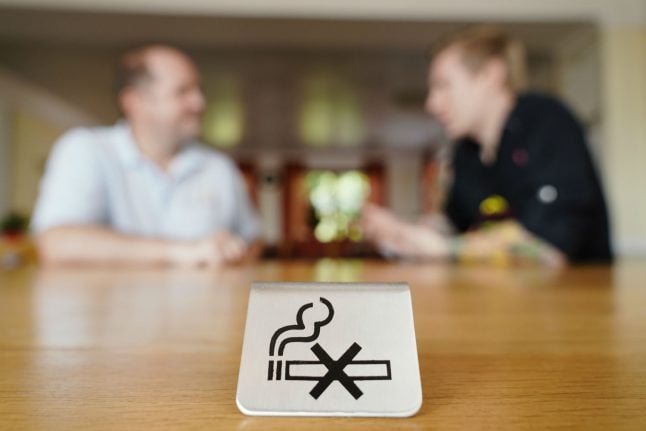Löw, who was banned to a spectator box during the match for an infringement during the previous game, was seen smoking a cigarette while his 11 players were running their hearts out on the pitch.
Social Democrat politician Lothar Binding had criticized the trainer as giving a bad example by smoking in public.
But Löw told the Welt am Sonntag newspaper, “What should I say about it? It is my private thing. I am just human, with strengths and weaknesses. I smoke a cigarette sometimes, or drink a glass of red wine in the evening. It is not as if I am a hedonist.”
He said he had smoked the cigarette during a stressful time, and was aware that he was seen as a hero by many.
But he said he tried to act as a good example through his work with the team and players, showing qualities of concentration, optimism, modesty and ambition.
He said it was not as if he had difficulty giving up smoking, saying, “I have to clear up a misunderstanding. I never fail when trying to give up, rather I take a break from it now and again. After the Euro 2008 is finished I will try to not smoke until the end of the year.”
The Germans beat Portugal 3-2 to make it into the semi final where they will face Turkey on Wednesday.
On Saturday night Russia pulled off a surprise win, with the youngest team in the tournament, knocking out Holland and lining up a semi final against the winner of Sunday evening’s match between Italy and Spain.




 Please whitelist us to continue reading.
Please whitelist us to continue reading.